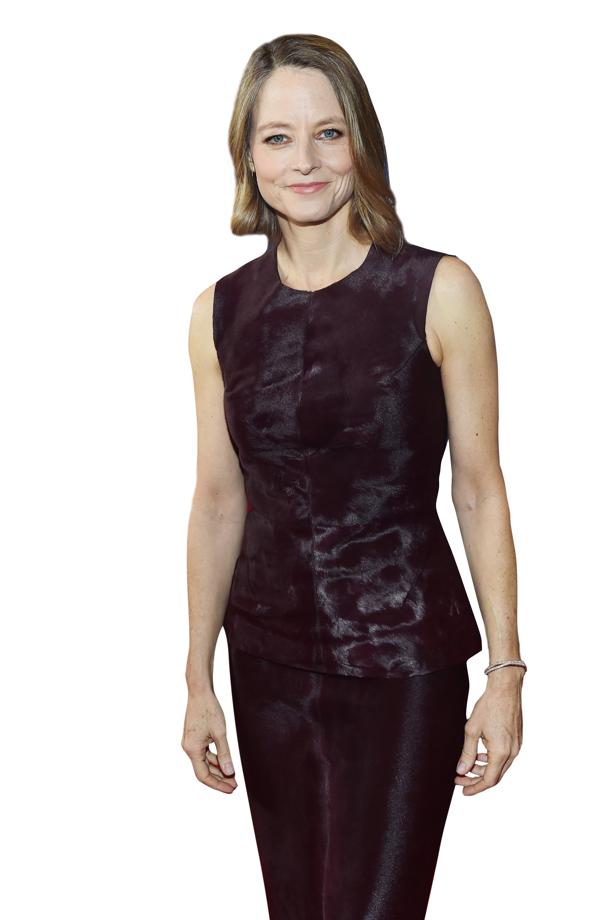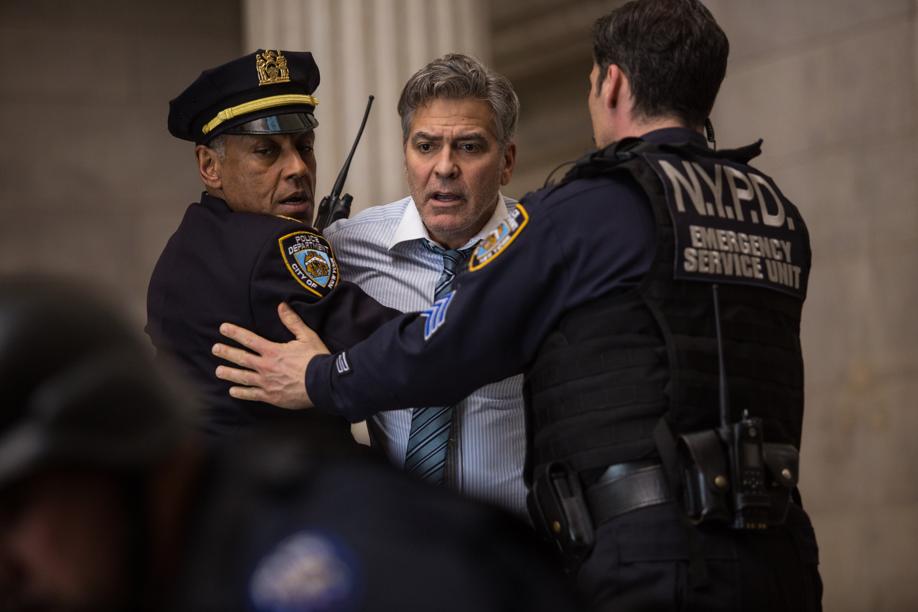

NEW YORK — As a two-time Academy Award-winning actress and international screen icon, Jodie Foster has proved to be pretty good at her day job. But it’s her sideline as a director, she says during a recent conversation inside a Manhattan hotel suite overlooking Central Park, that best suits her disposition. While she’s only had the chance to direct four films in her career, including her latest, “Money Monster,’’ which opens in Boston on Friday, she acknowledges that directing is “really 100 percent my personality.’’
“I’m intellectual, but I’ve had to sort of anesthetize that side of my personality in order to be an actor and to really engage in acting in a way that’s more physical and emotional,’’ she says. “So there’s a part of me that was left out.’’
Like many child actors, Foster’s profession was largely foisted upon her. Her mother, Evelyn, who now suffers from dementia, got her started in what Foster calls “the family business’’ at the age of 3. She did commercials for brands like Coppertone and Crest, then a series of small TV roles. She later shot to fame playing a 12-year-old prostitute in Martin Scorsese’s iconic 1976 film “Taxi Driver,’’ for which she pocketed an Oscar nomination. “It’s something I’m sure I never would have chosen,’’ she says of acting, between bites of a cookie. “I would have been a lawyer or something.’’
Still, Foster, 53, has no regrets about the path she followed, which has resulted in Oscars for emotionally wrenching performances in films like “The Accused’’ and “The Silence of the Lambs.’’ “It’s such a joy to have been given that opportunity to express myself in that way, and it’s made me a full human being in ways that I never would have been able to if I hadn’t become an actor. To explore your own psyche by interpreting a character, it’s a way of becoming conscious.’’
While she says she’ll never stop acting, she now wants to focus on directing. Her new film, “Money Monster,’’ stars George Clooney as TV personality Lee Gates, who hosts an outrageous stock market advice show. During a live broadcast, the Jim Cramer-like financial guru gets taken hostage by a disgruntled viewer who lost all his money after buying one of Gates’s stock picks that subsequently tanked. Julia Roberts plays Gates’s executive producer, and Dominic West is a shady business titan.
“From the time I was 6, all I really wanted to do is direct. I remember the first time I saw an actor who directed an episode of a TV show I was working on’’ — Bill Bixby in “The Courtship of Eddie’s Father’’ — “I was like, ‘Can actors direct? How do I get to do that?’ ’’
But because she concentrated on her acting career, Foster has only directed three previous features — “Little Man Tate’’ in 1991, about a conflicted child prodigy; the 1995 Thanksgiving comedy “Home for the Holidays’’; and the polarizing 2011 film “The Beaver,’’ which starred the radioactive Mel Gibson as a depressed father who begins speaking through a hand puppet. Helming episodes for television series like “House of Cards’’ and “Orange Is the New Black’’ further fueled Foster’s desire to work more behind the camera.
“There’s something wonderful about being the conductor and hearing all the pieces — the drums and the cymbals and the piano and the violin — and experiencing it completely, but being able to say, like, ‘You were rushing. You need to not do that one thing you were doing. That long piece, turn it into little small things.’ That discipline of being inside the experience and outside the experience at the same time, there’s just nothing like it.’’
In person, Foster may be petite but she cuts a formidable figure. She’s decked out in a black blazer and black pants and wears little makeup, her intent gaze peering out from behind round-rimmed glasses. As a woman who has spent most of her life in the public eye, Foster has a reputation for being justifiably guarded and protecting her privacy. After all, John Hinckley Jr., who stalked her when she was a student at Yale, claimed to have shot President Reagan because of his desire to impress her.
For years, she was Hollywood’s most famous lesbian while not being officially out of the closet, raising two sons with her ex-partner Cydney Bernard. (She married photographer Alexandra Hedison two years ago.) Despite Foster’s reluctance to discuss her private life, she displays a strong introspective streak and projects both steeliness and vulnerability (see: her soul-searching Golden Globes speech in 2013). She does reveal that her oldest son, Charlie, will be leaving the nest next year and recently visited colleges in the Boston area.
To deal with her fame, she’s had to develop a set of survival tools. “You have to work hard to design a life that feels real and fulfilling and where you feel true to yourself,’’ Foster says. “My way of making sense of [fame] and not having it ruin me was to compartmentalize and be like, ‘This is my work life. This is my real life.’ I approached everything in a really disciplined way. That was my mom’s way, too, and it was perfect for my personality.’’
As a director, Foster displays the same kind of control. Lara Alameddine, a producer on “Money Monster,’’ says that whereas “some directors are very passionate and can get frazzled a lot,’’ Foster is “calm, collected, and focused.’’ “During lunch, she sits with the crew. She talks with everybody. That’s part of her process. She makes everyone feel part of the fabric of the production.’’
Foster says it’s important for her to find a shared point of connection with each of her characters. “It sounds really self-absorbed,’’ she says, but “I feel like every one of the characters is me. I don’t know any other way than to step inside the characters’ feet and say, ‘What would I do in this situation?’ ’’
With Kyle, the desperate hostage-taker, Foster says his rage is relatable because of the injustices inherent in our economic and political systems. Indeed, “Money Monster’’ echoes the rage-against-the-system heroes in 1970s Sidney Lumet classics “Dog Day Afternoon’’ and “Network.’’
“[Kyle] did everything right. He worked hard. He took care of his mom. He saved his money and squirreled it away,’’ Foster says. “The system has been engineered to make people feel stupid and to profit the people who do understand the system.’’
Meanwhile, solipsistic showman Lee is the character who changes the most. “He starts out as somebody who’s lost and who’s so invested in his public persona. He doesn’t know who he is any more,’’ Foster says. “But all this enormous ego is in service of a man who feels terrible about himself and who has such a profound sense of failure that the only value he believes in is more dollar bills. A person struggling with his own persona who doesn’t know who he is and has become crippled by it, I feel like that’s something I really understand.’’
Indeed, says Foster of the self-examination that filmmaking affords her, “I make movies to look harder at myself, to look at who I was and who I’m becoming and try to figure out how to get better and not worse.’’
Christopher Wallenberg can be reached at chriswallenberg@ gmail.com.



